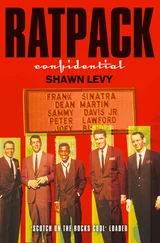It has all been her. He keeps telling himself that he is her rescuer — because that is who he is supposed to be, that is how the story goes — and yet it has always been her.
• • •
In the days after the bunny bash, Jason had conspired with every circumstance to find a way to Loretta. Two days later, he had stopped by their place after school, under the pretense of borrowing a fence puller of Grandpa’s. But Uncle Dean was in the yard and he simply got it from the shed. No sign of Loretta. The following day Jason brought it back. Ruth answered the door and told him to put it back in the shed, without inviting him in. Each time, before he arrived he would itch with nerves, wondering what he would do if he saw Loretta, and afterward he felt bereft. He called their house three times that following week, and every time, Ruth answered. “Harders.” Like she was angry at the name. Jason simply hung up.
Meanwhile, just as events called for him to be a man of action, he became a mooning girl. Lying in bed, awaiting sleep, he imagined scenarios in which he and Loretta ran off together, giddy in love. He pictured them at the ocean, kicking at the waves or chasing a kite. He imagined them at a Grand Canyon overlook, arms around each other as they gaped into that humongous hole, or at Niagara Falls, holding hands in the mist. These were places he had seen in magazines or on television. He never imagined them anywhere he’d actually been — never at the new mall in Twin Falls or at a football game at the high school. He concocted fantasies in which he struck back at Dean — punched him, or cracked him across the back with a two-by-four, or held him at gunpoint while he and Loretta backed slowly out of the house. But mostly he just thought of Loretta and him together, living in a city apartment like the Newharts, all sliding glass and evening light. He imagined her coming to him, draping her arms around his shoulders, pressing her nose into his neck. Chaste scenarios, impossible and lifeless. And whenever he faced the fact that he didn’t know her at all, he filled her in with his imagination, and her character became marked by one and only one outstanding quality: a blind, unwavering attraction to him.
He didn’t see her for days. He began to wonder if he had misunderstood what they had said to each other that bloody afternoon. Weren’t they talking about doing something? Something for real? He thought they were. He waited and plotted, and blew everything up in his mind, filled himself with ludicrous notions and expectations. He felt that now, finally, he understood what people talked about, what they sang about — this wrenching, consuming ache. Wasn’t it grand? Every lousy song on the radio was for him. For them. “How sweet it is to be loved by you.” “Lovin’ you is easy ’cause you’re beautiful.” “Love will keep us together.”
Eight days after the bunny bash, Jason arose at five thirty, walked through the stiff silence of the house to the mudroom, stepped into his boots and work coat, and walked out into the ice-metal cold foretelling the winter to come, across the dirt yard to the front room of the barn, where he dipped each of the eight large, hard plastic bottles into the tank and topped them with the red rubber nipples. The whoosh and spray of the barn carried on behind the filthy swinging door with the yellowing window. Dad standing behind it. Jason carried the heavy rack out to the calf pens, and upended them in the wire holders, and stood waiting, watching the little piebald slurp and drool on jittery legs, listening to a truck somewhere across the desert shift whiningly into gear, noticing a hiss and rustle behind the shed. The misted sun tried to rise from the horizon. Jason heard another hiss from the direction of the shed, followed by the staccato bray of a calf. And another hiss.
Then, as he turned toward the sound, his name.
“Jason.”
Peeking out from the side of the shed, Loretta’s face was tensed and red in the cold air, and her hair was tied back, covered by a gray wool hat, thick and hand knit, that made her face seem frail and small — chapped, rose cheeks, nub chin. Nervous eyes wide and gleaming. A ranch coat, denim and wool lined, and no dress. She wore the slightly baggy, square-looking jeans she’d worn to seminary. She smiled, and he tried to smile back. Here they were. Here they were. He looked around, walked over. An arrhythmic spasm crossed Jason’s face, and he wondered what he looked like to her. She seemed to be waiting for something, so Jason said, “What are you doing here?”
“I’ve been trying to talk to you forever,” she said.
“I’ve been trying to talk to you forever.”
“I’ve called. I’ve come over.”
“ I’ve called. I’ve come over.”
Her brow pinched, and she frowned a smile, as if she thought Jason was messing with her.
“Okay, never mind.” She took a breath. Her tone was the tone of a schoolteacher laying out the rules. Someone burying fluttery doubts under a plan. “We need to talk. Am I wrong about that? That we need to talk?”
“No, we do.”
“I mean, I thought we had a little something, a little agreement or something, and if we don’t, then fine, but I thought we did.” She didn’t seem nervous, really, just set loose. “You asked me, right? You asked me where I wanted to go, and then I couldn’t talk to you, I couldn’t find you, because everything is so screwed up at my house, and maybe at your house, too. I called, and you never answered. I came over here with preserves, and ran into your mom. I came over Saturday and pretended to return a rake — again, no you. I was starting to think I had imagined the whole thing. And that was terrible, because I got so excited about everything.”
She paused for him to say something, but not for long.
“I didn’t imagine the whole thing, did I?” she asked.
“I don’t think so.”
“You don’t think so. You mean you’re not sure? You mean — what? You don’t think so?”
“No, you didn’t imagine it.”
She peered at him intensely. None of this — this talk assault, this forward speed — was part of his picture of her.
“Does Dean know you’re here?” he said.
She bugged her eyes.
“Are you insane? Like I’d tell Dean I came over here to plot my getaway?”
A noise burst, like gravel being scuffed, and Jason nearly leaped. She smiled and said, “Easy, bronco.”
This was not right. She was not supposed to be the cool one.
“Okay, so. You remember what we talked about?” she asked. “At the rabbit thing?”
“Yes.”
“You remember what you asked me?”
Was this it? Were they leaving now? He was scared. He had been such a good boy, for so long, and he didn’t know how to be different.
“Where do you want to go?” he said, quoting himself.
“Right.”
“Yes,” he said. “I remember.”
The calves brayed and trotted around their pens. Dad would be expecting him to return with the empties soon.
“I know where I want to go,” she said.
She had it all worked out. She knew everything.
• • •
Loretta is a fast, fast driver. Sometimes she takes her eyes off the road, and the LeBaron drifts, and Jason has to speak up before she notices, and then she laughs.
She is talking about Elko. She says she’ll get them a room and pay with a check she stole from Dean. She’ll take care of it. It’s all so wrong. Jason emptied his bank account and brought all his mission money—$71.53—but she doesn’t need even that.
“Dean has checks?” Jason asks, because he knows that Dean distrusts banks.
“For business. For emergencies,” she says happily. “This seems like an emergency.”
Читать дальше












